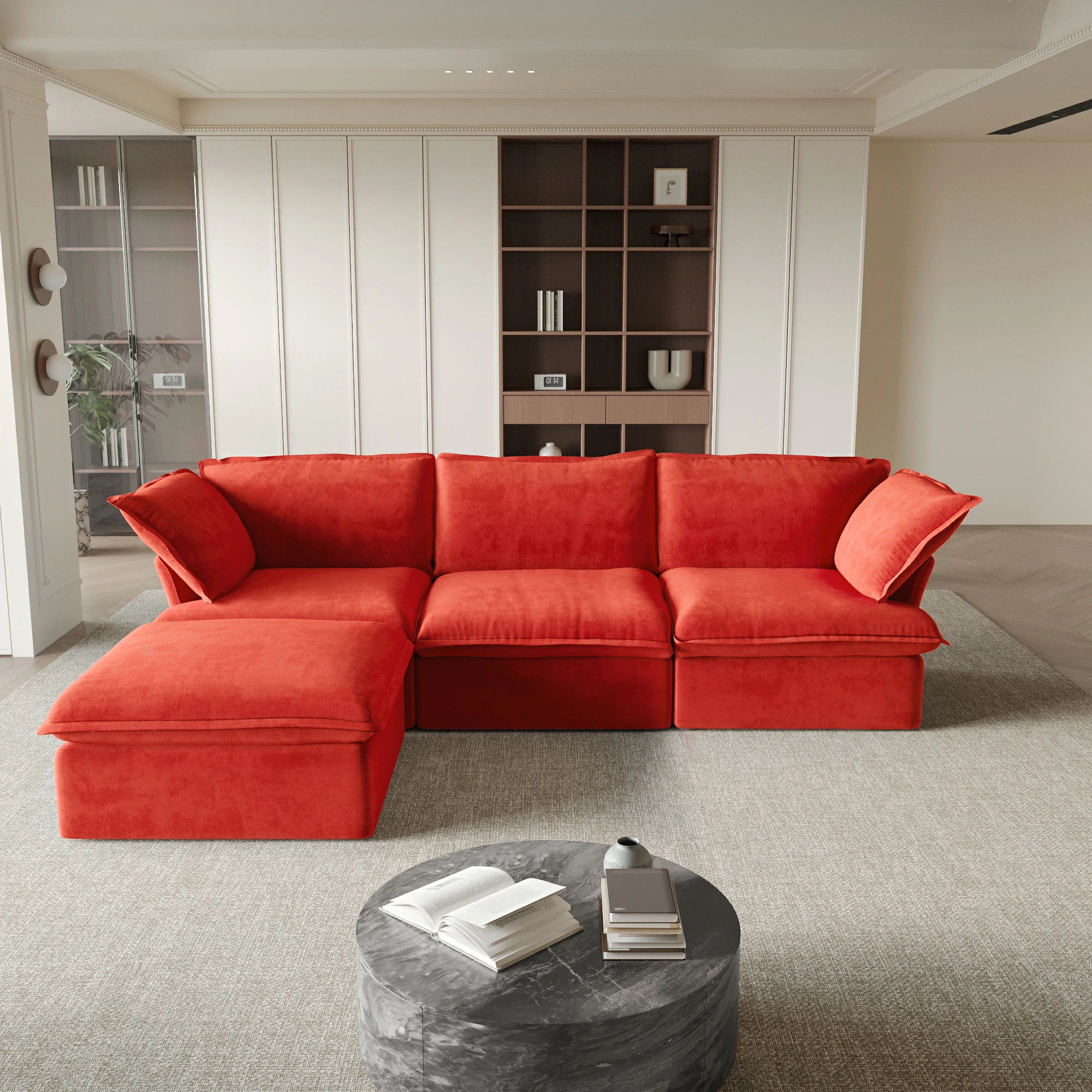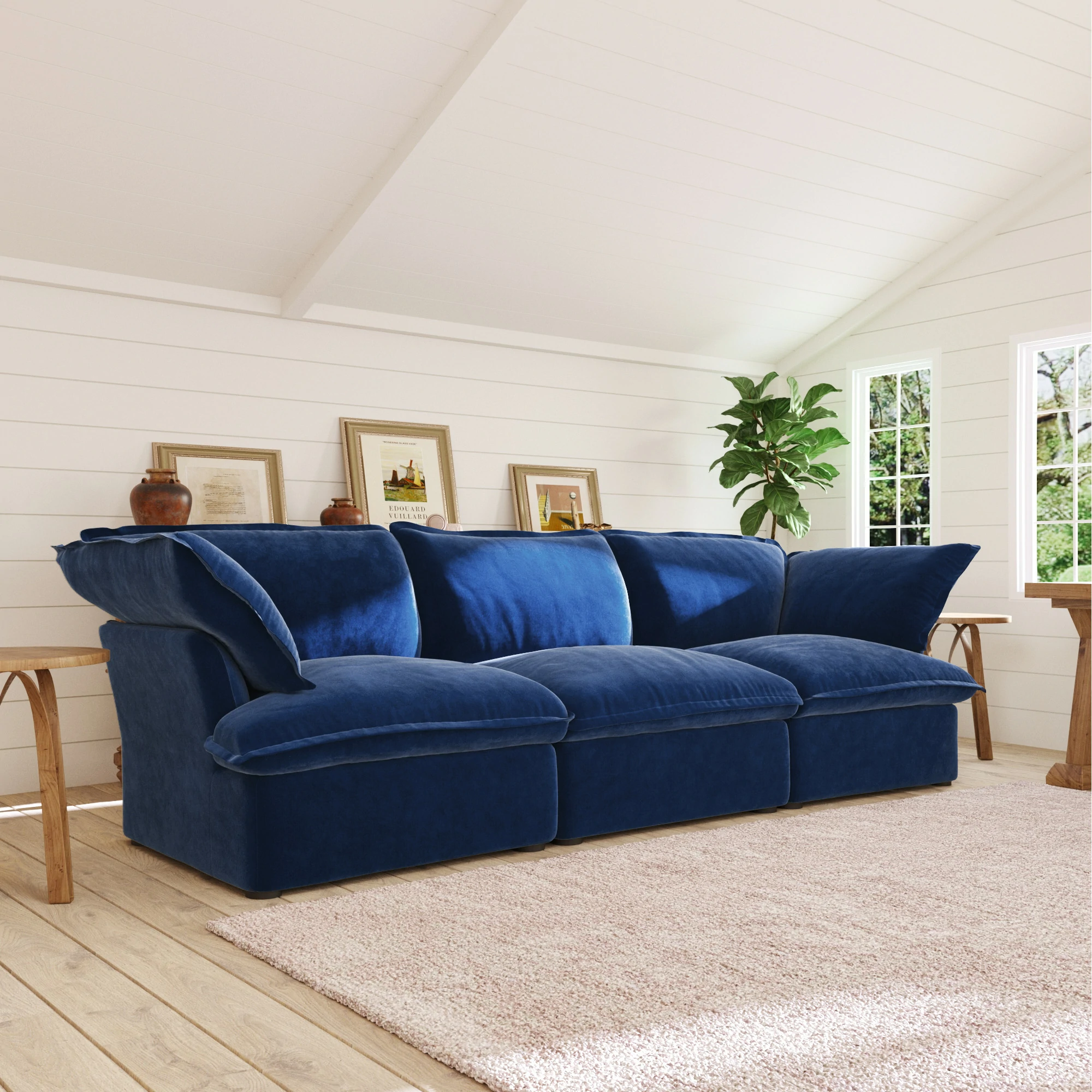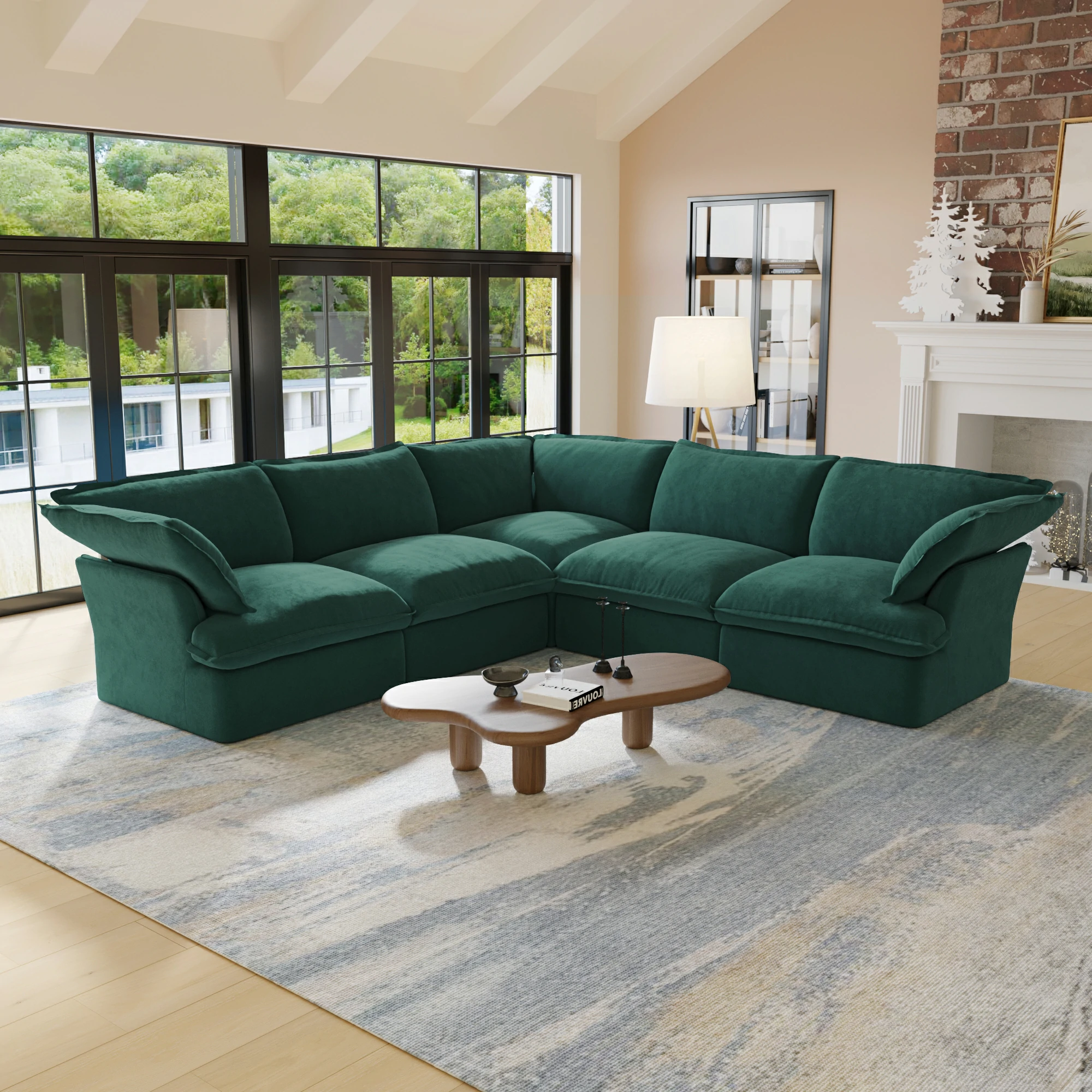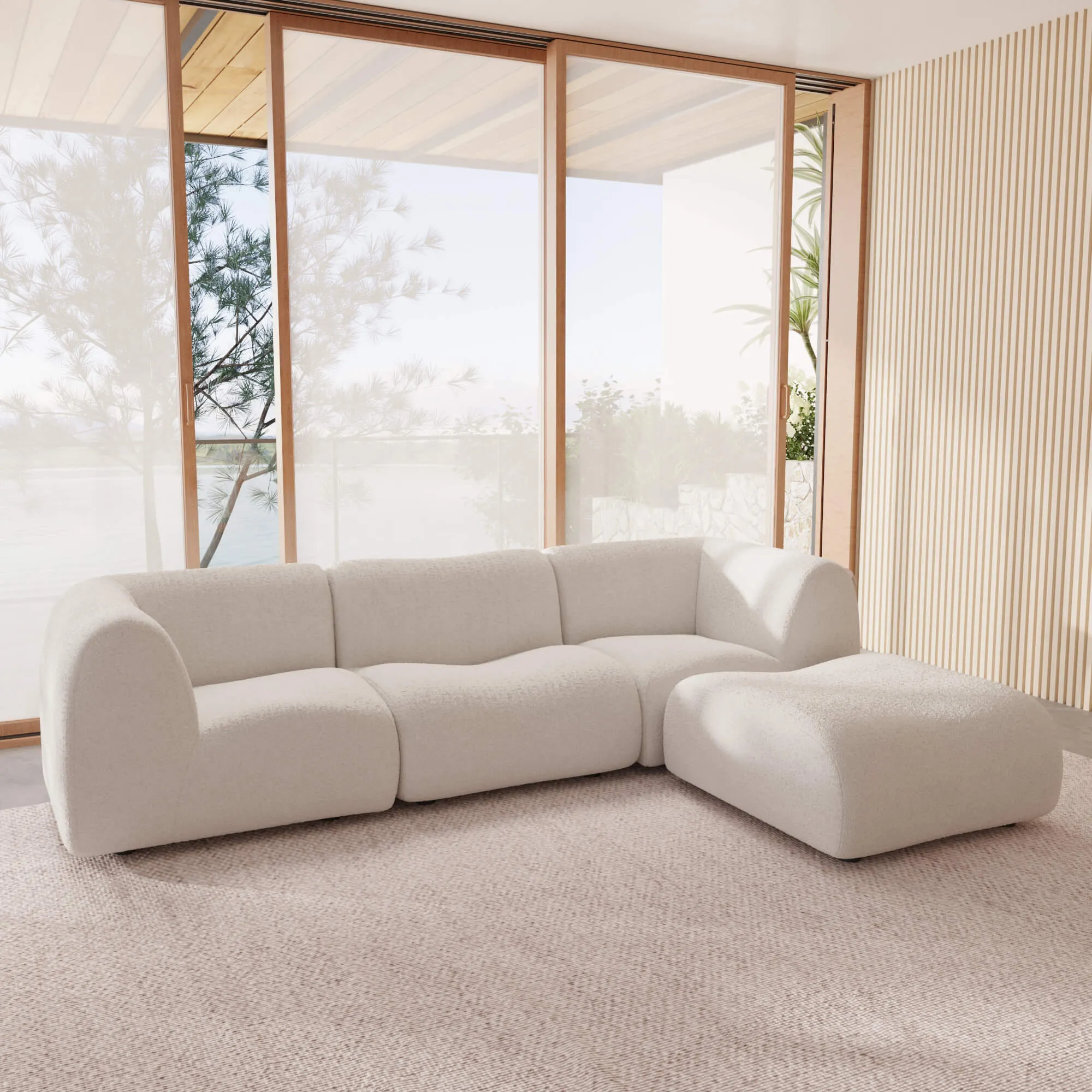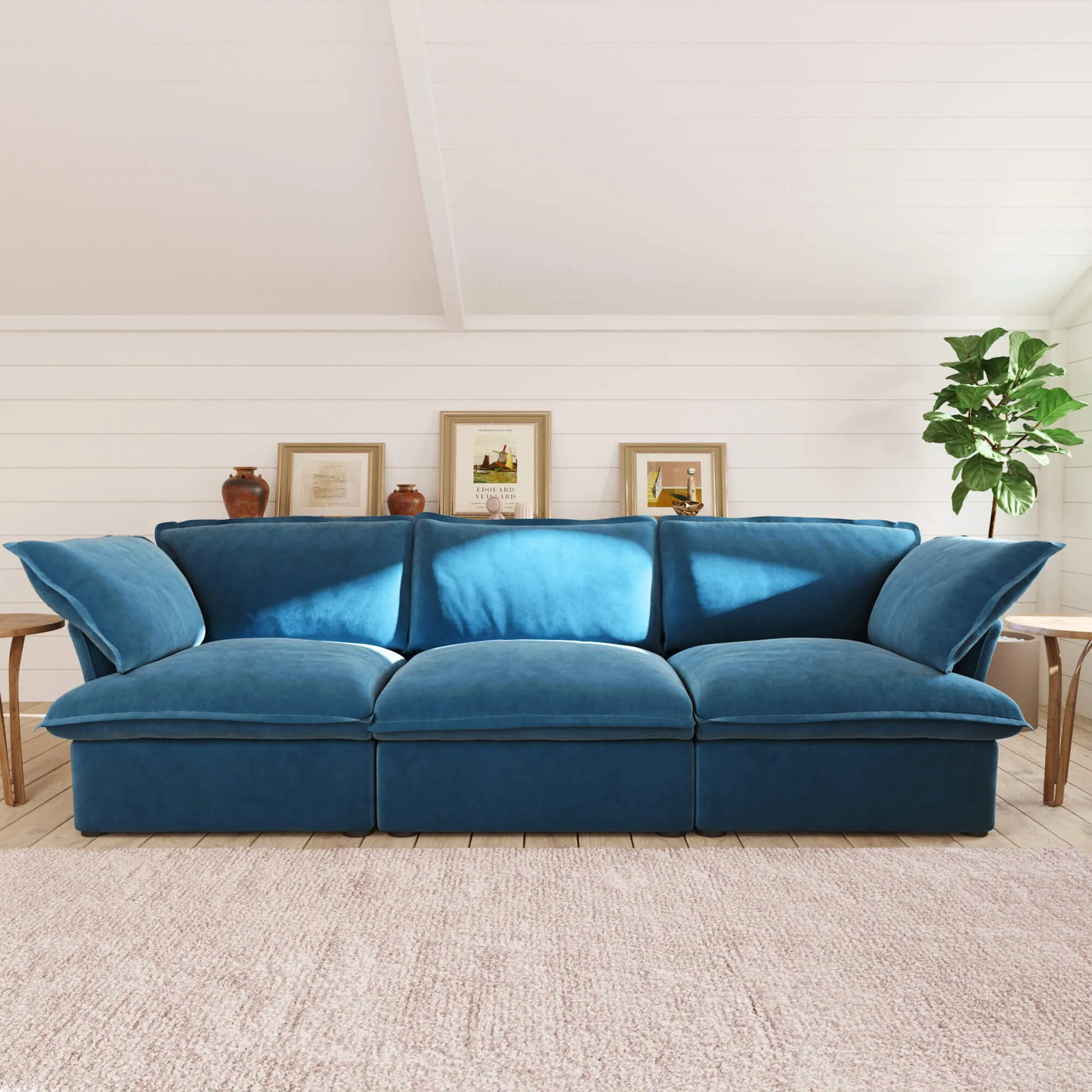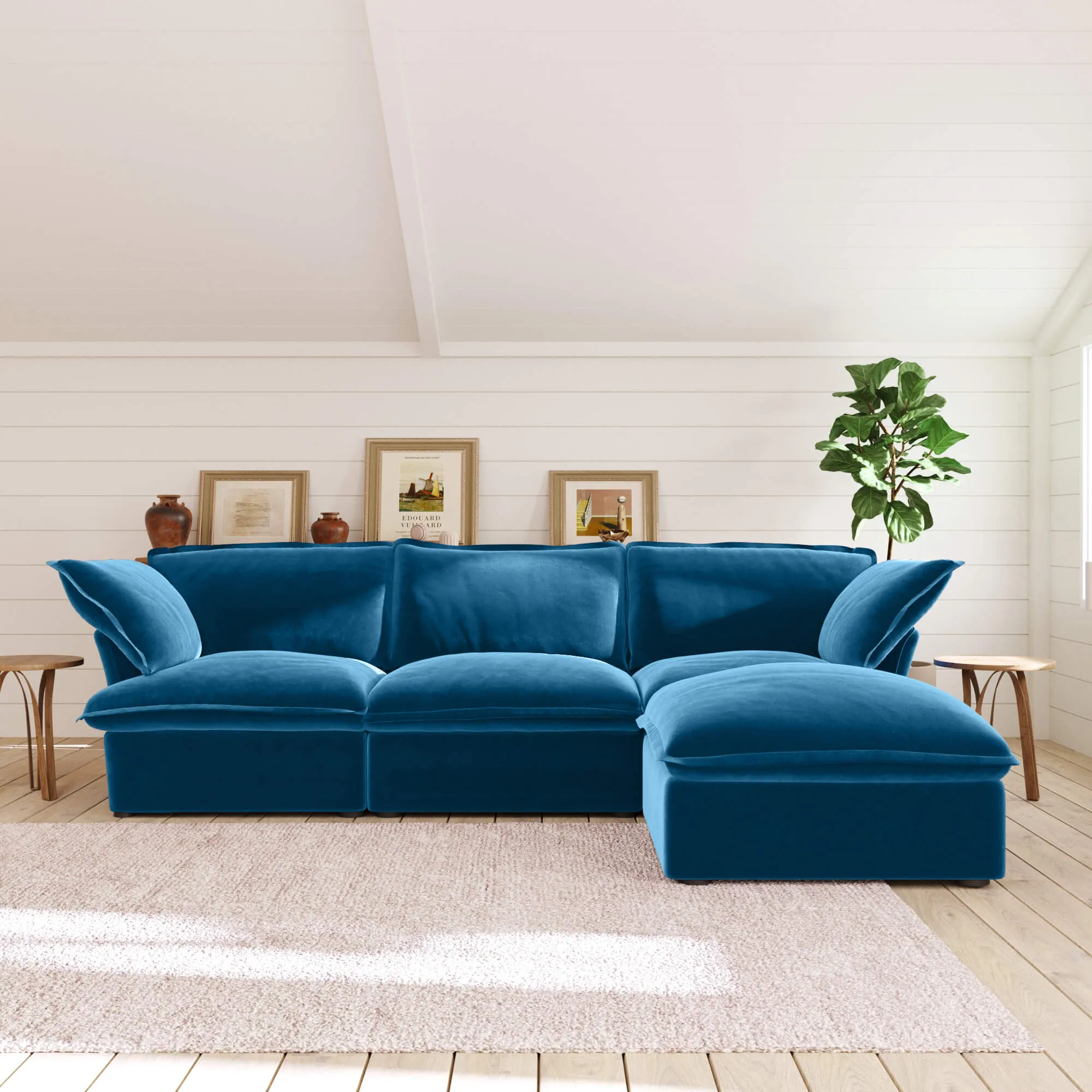Details of the Velvet Sofa Fabric: Is It Durable, Easy to Maintain, and Pet-Friendly?
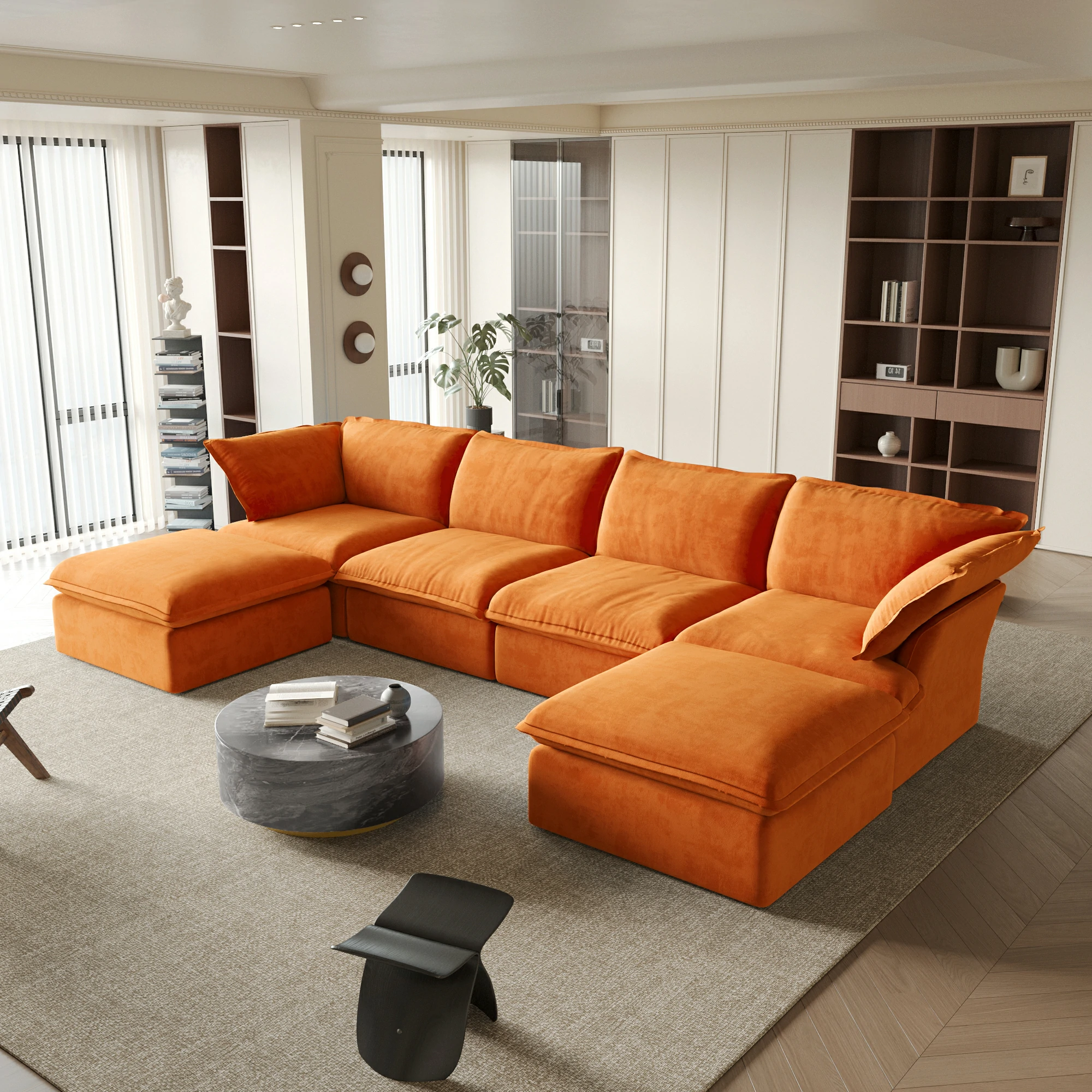
Have you ever stroked the surface of a velvet sofa, exclaiming in wonder, “Wow, this is luxurious fabric”? There's something about velvet fabric. It has a way of catching the light that lends any room an air of elegance. But when it comes to picking the upholstery fabric for sofas, it's worth remembering that looks aren't everything.
You may be wondering: Is velvet fabric the way to go for a sofa? Will it last? Is it a hassle to maintain? And if you have pets, is velvet fabric a recipe for disaster? In this blog, we'll answer these questions and determine if a velvet sofa is the perfect piece of furniture for your home. Let's get started!
Is Velvet Fabric Durable?
Quick Answer: Yes. Velvet fabric is durable because of its structural traits. With good care, it withstands use and lasts for decades.
Structural Traits
Velvet fabric has no loose threads or raised weaves and it only has a short, dense pile. So it's difficult to snag and more durable than other fabrics like cotton or linen. This structure makes it naturally resistant to fraying and pilling.
Over time, the fibers can become “crushed” in high-contact areas and leave visible imprints. But crushing doesn't mean the fabric is damaged. It's simply the fibers being pressed down. Luckily, it's reversible with steaming or gentle brushing.
Material Composition
The lifespan of a velvet sofa mostly depends on what kind of velvet fabric is used. Velvet itself is actually not a material but a weaving process that creates a dense, plush pile. What really determines its longevity is the actual material that is used to make up the velvet fabric.
If durability is what counts, then performance velvet or synthetic velvet is your best option. These options have greater abrasion resilience compared to natural velvet like cotton or silk.
Is Velvet Fabric Hard to Maintain?
Quick Answer:Not necessarily. Performance velvet is stain-resistant and easy to clean, but natural velvet requires more upkeep.
Stain Resistance and Cleaning
One major concern with velvet fabric is its resistance to stains and spills. Natural velvet, like cotton or silk, is more absorbent and will stain if not wiped clean right away. On the other hand, performance velvet and synthetic velvet are treated to repel liquids, making them far easier to clean.
For cleaning, quick action is critical. Blot spills immediately with a dry cloth—never rub, as that will push the stain deeper into the fabric. Some performance velvets also allow gentle spot cleaning with water and mild soap, but always check the manufacturer's care instructions. To give your sofa an added layer of protection, use a fabric protector that gives an added barrier against moisture and dirt.
While velvet fabric is not completely stain-proof, high-quality synthetic velvets are simpler to clean than people expect. Choosing the right one can make it much less stressful to maintain.
Pressure Marks and Pile Maintenance
Velvet's softness comes from its tight, short pile, but over time this may alter. Unlike woven fabric, which will always be flat-faced, the fibers in velvet can develop pressure marks on the subject of use. If you notice particular spots looking darker or more flat, don't worry—this is a natural aspect of the material.
To maintain the pile:- Brush the material with a soft-bristled brush every so often to pick up the fibers.
- Gently relax flattened sections using a steamer and re-establish the plush texture.
- Rotate cushions regularly to distribute wear evenly.
Certain velvets, like crushed velvet, naturally have an uneven surface and pressure marks are therefore not very noticeable. For those who want a completely flat surface, brushing and steaming regularly will keep the material looking new.
Is Velvet Fabric Pet-Friendly?
Sort of. When it comes to being pet-friendly, velvet may not be your first choice! While it is more resistant to pet hair than woven material, it is susceptible to claw marks if your pet scratches furniture.
How Velvet Fabric Handles Pet Fur
Compared to woven fabrics like linen or tweed, there is not an open weave, so pet hair does not get stuck as easily. However, some hair will still cling to the surface, especially on natural velvets.
Gladly, pet hair can be removed with:- A lint roller
- A vacuum with an upholstery attachment
- A damp microfiber cloth
For cat and dog owners, performance or synthetic velvet is the best choice because it reflects less hair buildup than cotton or silk velvet.
Scratch Resistance and Claw Marks
Velvet fabric's tight weave makes it less prone to snagging compared to loosely woven fabrics. But sharp claws can still leave marks, especially on softer natural velvet.
Here are some tips for homes with pets:- Choose performance velvet, which is more durable and scratch-resistant.
- Buy a protective slipcover for added defense.
- Trimming your pet's nails to reduce the risk of damage.
Even though velvet fabric is not the most pet-proof material, it still performs better than more delicate materials like silk or linen. If you have a pet-friendly home, choosing a darker-colored, synthetic velvet can help disguise minor marks and fur.
Conclusion
So, is a velvet sofa a good option? The answer depends on your needs and your lifestyle.
- If you want a luxurious, stylish centerpiece, velvet fabric is a fantastic choice.
- If you choose performance velvet, it can be durable and easy to maintain.
- If you have pets, it's better than some woven material, but sharp claws will still ruin it.
With the right care, a velvet sofa can last for years and grace your home.
Read more:
How to Choose a Pet-Friendly Sectional Sofa for Your Home

